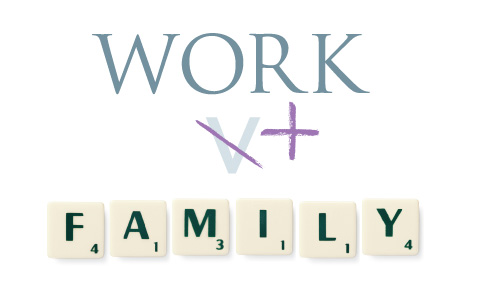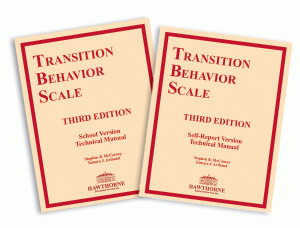Work-Family Conflict
Work-family conflict refers to a situation where the demands and responsibilities from work roles and family roles are mutually incompatible...
Read More
Work-Family Enrichment
Although work-family research has typically focused on the difficulties of participating in both work and family roles (i.e., work-family conflict),...
Read More
Work/Life Litigation
Work/life litigation refers to legal action taken against employers for discriminating against a worker or workers due to their family...
Read More
Workaholism
Although the popular press has paid considerable attention to workaholism, very little research has been undertaken to further our understanding...
Read More
The Worker Adjustment and Retraining Notification Act (WARN) of 1992
The Worker Adjustment and Retraining Notification Act (WARN) of 1992 was passed by the U.S. Congress in part to provide...
Read More
Workforce 2020
The workforce research of the Hudson Institute has consistently emphasized the role of “shaping forces.” The research took its most...
Read More
Career Attitudes and Strategies Inventory
The Career Attitudes and Strategies Inventory (CASI) is a 130-item, paper and pencil, self-report assessment by John L. Holland and...
Read More
Jackson Vocational Interest Inventory
The Jackson Vocational Interest Inventory (commonly known as the Jackson Vocational Interest Survey or JVIS) is a standardized, normed career...
Read More
Values Scale
The Values Scale (VS) is used to assess values in life roles, largely in relation to work. Items query both...
Read More
Transition Behavior Scale
The Transition Behavior Scale, Second Edition (TBS-2) has as its intention the identification of behaviors that are thought to interfere...
Read More
Ceremonial Masks
A ceremonial mask is defined as a headdress or an object that covers the face for purposes of protection, ritual,...
Read More
Cultural Materialism
Societies survive and successfully reproduce themselves only insofar as they meet the elementary material needs of a certain minimum of...
Read More
Matriarchy
Matriarchy is a term we use with two main meanings: (1) domination by female members of society and (2) women-centeredness...
Read More
Marcel Mauss
The French-born sociologist and anthropologist Marcel Mauss is best known for his analysis of gift-giving societies and their relationship to...
Read More
Jury Selection
Before a jury trial begins, attorneys must select a jury from a panel of community members who have reported for...
Read More
Jury Size and Decision Rule
Both the size of the jury and the number of jurors who must be in agreement for a verdict to...
Read More
Jury Understanding of Judges Instructions in Capital Cases
Research has shown that jurors in many types of cases frequently fail to understand the jury instructions they receive. However,...
Read More
Juvenile Boot Camps
Correctional programs designed to be similar to military basic training are called “boot camps.” Although there are some programs for...
Read More
Juvenile Offenders Risk Factors
Broadly defined, a risk factor for juvenile offending is any experience, circumstance, or personal characteristic that increases the probability that...
Read More
Juvenile Psychopathy
Despite disagreement about its exact contours, most conceptualizations of psychopathic personality disorder emphasize traits of emotional detachment, including callousness, failure...
Read More
Juvenile Death Penalty
The controversy surrounding the juvenile death penalty is not new; the courts have struggled with the issue for decades. Meanwhile,...
Read More
Legal Authoritarianism
In its broadest sense, legal authoritarianism refers to the constellation of beliefs held about the legal system that is relevant...
Read More
Legal Negotiation
Negotiation is extremely common in legal settings. In the criminal context, most cases are resolved through the plea bargaining process...
Read More
Legal Socialization
Legal socialization is the process of developing attitudes toward rules, laws, and the legal system. Legal socialization research studies this...
Read More
Career Certifications ⋆ Sports Psychology ⋆ Lifestyle
Professional certification serves to identify individuals who have obtained or maintained qualifications to perform a specific work responsibility or task....
Read More
Sports Consulting ⋆ Sports Psychology ⋆ Lifestyle
Consulting may be described as a temporary relationship that is developed when an individual or entity seeks information or advice. ...
Read More
What is Credentials? ⋆ Sports Psychology ⋆ Lifestyle
To call oneself a psychologist (at least in the United States and Canada), or use the terms psychologist, psychological, or...
Read More
Drop-out Meaning ⋆ Sports Psychology ⋆ Lifestyle
The term drop-out has two meanings. In elite sport, drop-out refers to a premature termination of a sport career before ...
Read More
Ethical Issues in Sports ⋆ Sports Psychology ⋆ Lifestyle
Ethics is the investigation of the primary moral assumptions held by individuals, organizations, or professions that are used to help ...
Read More
Services in Sport ⋆ Sports Psychology ⋆ Lifestyle
Sport and exercise psychology (SEP) services (e.g., team interventions, one-on-one interventions, and consultation with organizations) aim at performance enhancement with ...
Read More
Sports Psychology Consultant ⋆ Sports Psychology ⋆ Lifestyle
Sport psychology professionals maintain an ethical obligation to ensure services are helping clients (and conversely, not harming them), and thus...
Read More
Supervision in Sport ⋆ Sports Psychology ⋆ Lifestyle
Supervision is a central component of professional training and development, providing opportunities for sport psychology (SP) practitioners at all levels ...
Read More
Professional Training ⋆ Sports Psychology ⋆ Lifestyle
Individuals preparing for a career in sport and exercise psychology (SEP) have traditionally followed one of two educational paths, training ...
Read More
Career Transition ⋆ Sports Psychology ⋆ Lifestyle
The term transition has been employed in various academic fields to explain a process of changes in a certain phenomenon, ...
Read More
Power, Dominance, and Social Interaction
When individuals engage in social interaction, regardless of the relationship they have with each other and the context within which...
Read More
Reciprocity and Compensation in Interaction
Social interaction is a complex, yet often subtle, process through which humans transmit information, pursue social goals, and initiate and...
Read More
Relational Control
Relational control is the most dynamic of the three dimensions of social relationships proposed by Millar and Rogers (1987) –...
Read More
Relational Dialectics
Relational dialectics is an interpretive theory of meaning-making in familial and non-kin relationships. Formally articulated in 1996 by Leslie Baxter...
Read More
Relational Maintenance
Relational maintenance refers to activities that occur in interpersonal relationships after the relationship is developed and before the relationship is...
Read More
Relational Schemas
Schemas are defined as large-scale cognitive structures representing general knowledge, often also described as subjective theories, about some object or...
Read More
Relational Termination
Approximately 50 percent of first-time marriages, and an even higher percentage of remarriages, end in separation or divorce. Because researchers...
Read More
Relational Uncertainty
Relational uncertainty is the degree of confidence people have in their perceptions of involvement within interpersonal relationships. The construct has...
Read More
Schemas, Knowledge Structures, and Social Interaction
Knowledge structures are mental representations of regularities believed to exist in social situations and people’s dispositions and behaviors. Specifically, knowledge...
Read More

















































